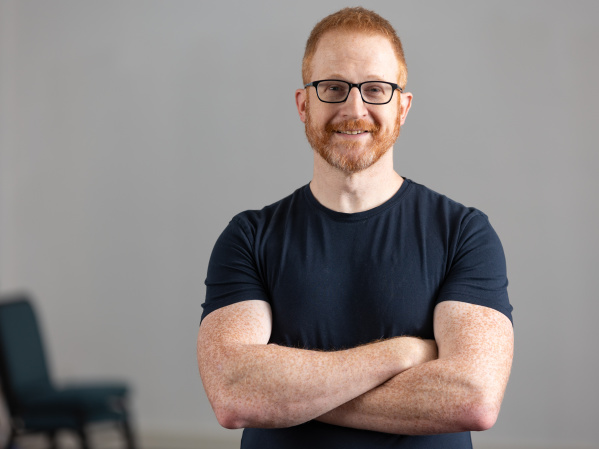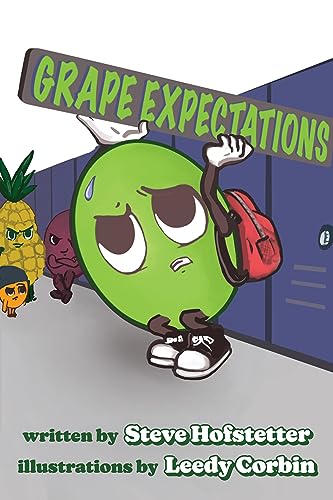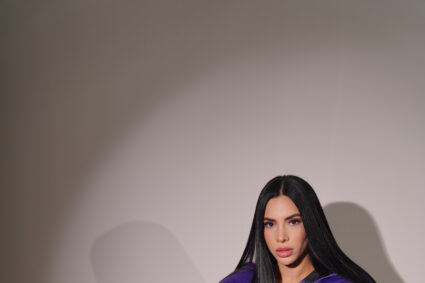
Our next guest on SNAPSHOTS tonight does “comedy without apology” and from the many videos I have seen, he packs a punch. He has over a billion views on YouTube, Facebook and Instagram. A Nobel Peace Prize-nominated comedian and DC will get a dose of his comedy this Tuesday March 12th at the DC Comedy Loft at 8pm. Tickets are available including VIP seating at https://www.dccomedyloft.com/shows/231628
Let’s welcome to SNAPSHOTS – Steve Hofstetter
How’re you doing, Steve?
I’m doing well. I had no idea that this would be a video I probably should have showered. But hey, good to get to do the interview?
Well, I’m so glad to have you here. As I mentioned at the start of the show, I’m a really big fan of your work. Your current tour is called “Kill the Butterflies” which is a good name for the Spring season. What can our Washingtonians look forward to?
Well, I want to be clear, I don’t mean physical butterflies. It’s a metaphor. It’s a reference to the idea of butterflies in your stomach. One of the things I’m talking about is anxiety and mental health and kind of the euphemisms that people use to distract from the actual issues. So “kill the butterflies” is a reference to kind of not letting your mental health run you but do it the other way around.
Absolutely. Since mental health is a hot topic issue among us in society, what does mental health mean to you personally?
Well for me, without giving away too much of the of the actual material, mental health is something that I was battling for a very long time without knowing I was battling it, because it’s only been the last five to 10 years that we’ve really been open about it. I mean, one of the jokes is that the original diagnosis, when I was growing up was “He’s weird”. And then which is still better than it used to be, which was, “she’s a witch”.
So, we’re slowly evolving but we still have a lot to go. There is an ethos, especially with men of the idea of “oh, you’re admitting that you’re not perfect” what it was, and it’s like, “no, none of us are perfect, you idiot”. And also, there isn’t such thing as an Alpha, that was scientifically disproven a very long time ago. And you would know that if you could read. Mental health is about finding a way to be comfortable in the moment each day, and recognizing that some moments will be better than others.
You’re absolutely right, especially when it comes to men that we’re all supposed to not cry, the “be a man, be tough” persona. But we have moments where we need to cry, we need to get it out. We need to show our emotions.
Yeah, I’ve seen “Rudy”. You can cry, it’s fine. You know, for a long time, I didn’t cry. I used to cry a lot as a kid. And then when I was 15, my parents got divorced. And I basically just shut off my emotions. I was like, “Okay, I am now and my mother was still there. I had to grow up quickly. I barely cried for a very long time. And then once my father passed, which was almost a decade ago now, I started crying and everything. It was just one of these things that I don’t know what that trigger was.
I went from someone who could always hold it together always be the stoic one, always push down my emotions, etc. And now, every time something happens that he would have enjoyed, I’m just like, the Mets won. And he would have been so happy that they finally won a game and I’m all over the place now.
I read that you didn’t intend to be a comedian but a writer and yet you have done both. You have written six books so far. How did you find your way into comedy?
I started doing stand-up kind of to pass the time for I couldn’t get a gig as a writer. I was the youngest baseball beat writer in the world. I was 20 years old. And then after I graduated college, that was during the dot-com bubble burst. And so, all these mid-level writers were going back to entry level jobs. And the job that I got offered was covering high school baseball in Freeport Illinois for I believe it was $10,000 a year, which even then was insulting now. In Freeport, you could buy a house, but it was just one of these things where I’m like, “I’m not gonna write about these 15-year olds. Absolutely not, this is ridiculous.”
And so, I turned it down and I was doing freelance. I would get the occasional articles from ESPN: the Magazine and did some stuff here and there. I got one of the times but that kind of stuff doesn’t pay bills it, it lets you occasionally eat canned soup. And so, I started doing stand-up as kind of a way for my mental health without knowing that what it was for at the time. I thought, “Oh, I’m bored” but really, I was sad. So I started doing stand up. And the way I describe it is like being thrown to the ocean and discovering I was a fish the whole time. I could finally breathe. I just kind of took to it and been doing it ever since.
And you breathe some great life in the world of comedy, especially what I’ve seen your material nowadays. I saw that recently that you got to read your children’s book “Grape Expectations” at a local library. Tell us first about the book for those who never heard of it and the experience of reading it to the kids.
So the book started as a joke. The way it happened was my ex-wife used to work for a Broadway company. And when I would call her at work, the way her system worked is it would like translate her extension, and then she wouldn’t have a caller ID. So she wouldn’t know it was me until she picked it up. I would always just call from the road. And again, just being a silly board person, I would start out the call pretending to pitch a Broadway show. And it was just a way to just make stuff up, I was just be as ridiculous as possible.
So one day, I pitched this idea for a show. It’s about a grape that wants to become a dancer. In a world where that is not allowed. And it was just a very stupid, silly thing. But then I thought about it more. And I kind of came up with this idea before trans rights were under attack and a lot of stuff that we’re dealing with today. And the concept of the book was twofold. One, how you’re born doesn’t determine your future. And two, I always had a real problem with the “you could be anything if you just set your mind to it idea.” One of my earliest jokes was you can be anything you’ve just set your mind to it. Well, I spent that entire summer trying to make my sister’s head explode. Like, you could be any, you know, you could do anything if you set your mind to it…. if you put the work in. That’s what that that’s what the rest of the phrase should be.
And so this story ended up becoming this idea of it’s a world where fruit have different professions based on what fruit they are. And he wanted to break the system. I eventually wrote it down as a story. And at the time, I had told it to my niece and nephew and they loved it. And to the point where my my niece made me a little birthday grape doll in some art project in class, and they would tell their classmates about it. And I was like, “I may have something here”. Like it started as a joke, but this may actually resonate with children. And so I wrote it all down, and I wanted to turn it into a book.
I just didn’t really have the resources at the time, especially, being known as a comedian, and not a clean comedian, either. How do I pitch this to actually get published. I just kind of sat on it for many years. And eventually, when I had enough audience that I can kind of publish and sell what I want. I was like, “I’m just going to do this.” I was touring with an artist. So I asked her if she would illustrate it. And, it became that collaborative project, now we have a real book. And it’s doing really well. It’s one of these things where I keep getting messages of people sending me pictures of their kids hugging the book, or stories of how their kids will read it every night before they go to bed.
And the coolest thing that happened while so this was the first public reading I did of it. One of the kids at one point asked because there’s this moment of the book where, they’re kind of having this like career day in their class. And he catches the premise that like, why would they have a career day? If they all have to be if all these grapes have to have their path chosen for them already? And he asked, “why would the teacher asked what he wanted to be?” And I smiled, and I said, “because she was helping.” And it’s a moment in the book, no adult has ever brought it up to me. I’m sure some others have noticed it. No one’s ever brought it up to me before. And the idea is, because this teacher is an ally, because this teacher, while they’re not allowed to, you know, say this is wrong. I don’t like this system, this has to be changed. They are allowed to encourage their students to think independently. And that’s one of the little parts of the book that I didn’t know if anyone get and it was amazing to see someone I think the kid may have been seven or eight years old. And it was amazing to see him just right there.
And you’ve done it so well. Speaking of shaping young minds, what comedians shaped your mind that you looked up to to perfect your craft as a comedian?
Growing up, my dad used to play me a bunch of comedy albums and some I resonated with and some I didn’t. I actually felt very this is weird to say, but I felt very vindicated when the world finally turned on Cosby, because I never found him funny. I never enjoyed his stand up, I found it to be generic. I was like six years old. And I was kind of wanting to feel like I’ve heard this before. And but the the ones that I vibed with were a much different taste. I vibed with (George) Carlin. I vibe with Dick Gregory. And as I got older, I started listening on my own. I started listening to (Bill) Hicks. And you know, I read an article about Bill Hicks, that Rolling Stone article that really kind of blew up his career. I was sitting in a barbershop with my dad waiting for him to get his hair cut. And I had just, you know picked up a magazine and was leafing through it, and I must have been 11 or 12 years old. And I was like, “Oh, wow, this guy sounds funny”. And I just started kind of seeking it out. I still remember two of the jokes that were quoted in the article.
So Dick Gregory was one of my dad’s favorites. And the last time I ever saw my dad before he passed, was I got to open for Gregory. And not only that, but I got to drive with him from Louisville to Indy. Part of it was that, you know, he needed someone to drive in between the gigs.
The one thing that threw into your material is the way you handled and owned hecklers. You do a masterclass in it. Sometimes, its not their actions that you go in for the kill – its their words. As comedian, it truly feels like you read the room and know the audience to handle the situation perfectly.
I refer to my heckler videos as the gateway drug to my comedy, because it’s the thing that’s the most popular, it gets people in and then eventually they discover my material. I always find it funny when someone will comment something like “Oh, is all you do, deal with hecklers?” And I was like, “yeah, yeah, I think to the logistics, and then I go on stage. I say nothing until someone yells out at me. And sometimes it doesn’t happen. So it’s just an hour of silence.” It’s very Avant Garde. People can be very stupid. But anyway, the IT psychology it is, you know, you give them enough rope to hang themselves. And it’s that concept in Gladiator – “You win the crowd, you win the day.”
There was the one I didn’t get recorded because it was I frickin’ double clicked record on the camera. When I went back to look at the footage, I yelled because there’s that split second it recorded and then it sounds like “Oh, no.” And now, I film everything with three cameras, just in case, you know, God forbid, one of the SD cards dies, I’m still okay. But the there was this moment, it was in Ann Arbor.
And this was a bachelorette party. I will never understand why comedy clubs actively encourage bachelorette parties to come to shows like you can allow them to come to shows but the tickets don’t cost less, they cost more, you should have to pay more to ruin someone else’s night. So there’s this bachelorette party, and for the most part, they’re pretty well behaved. And there’s one woman who will not shut up just everything, not even she’s not not just answering rhetorical questions. She’s answering things that are not questions. And I keep telling her to be quiet. And finally I’m like, “Okay, I have to address this head on.”
And I start talking to her, I find out she’s the maid of honor. And I’m like, “you know, I joke” and I’m like, “Oh, great. So you get to give a speech. How long is that gonna last?” And so you know, I’m getting some laughs here and there. And it gets to the point where I say to her, “I hope you catch the bouquet”. And she goes, “I already told you I’m married”. And I said, “I understand that but I also know that based on your actions, your husband’s going to leave you and you’re probably going to die alone.”
And when I said that the crowd erupted in applause because they all wanted worse for her. To them. I was being compassionate. I was being kind by only saying you’re gonna die alone. And it was because by that point in the show, the crowd I mean, these people had paid money for tickets. They had hired a babysitter they bought food and drinks at exorbitant Comedy Club prices. You know, this is like, and she was destroying their fun not. And so by the time I swung, they were, they weren’t just ready for a knockout punch, they were ready for me to end her life. And so the fact that I only swung was kind to them. And that was all metaphor, by the way, no one’s actually murdering anything. Just want to be very clear.
Do you feel comedy is in a very good place, especially with what’s happening with today’s political climate?
I think so. One amazing thing about stand up right now is that the gatekeepers are gone. Anyone can blow up on reels on Tiktok, on shorts on any of that stuff. And once you do, you can sell tickets directly to your fans. There are all these mechanisms that you no longer need a gatekeeper, you don’t need to be anointed. That’s the best comedy is in its heyday, right?
Now, a negative thing is that, I’m a student of comedy history. And for the first time in comedy history, there is a right-wing wave of comedy. And comedy has always been progressive, it was hard to name a conservative comedian. Like, if you look at the Bush years, you pretty much had Dennis Miller and that was it. Part of that is because comedy is talking about the human condition. And when you examine the human condition, you inherently become progressive. And so, it is it’s very rare for there to be a conservative comedian.
Now, that changed during the pandemic. And the reason why is because the thing that the average comedian values more than their own morals than their own ethics than their fellow human is stage time. And when comedians couldn’t work, suddenly, there were a bunch of comedians who are like left of center, who just went bright and became this uncompassionate, selfish, just disgusting voice of hatred. Then you’ve also got the idea of “canceled culture”. I don’t think no one’s ever been canceled. No one I cannot meet whenever anybody is like, “I hate what canceled culture is doing a comedy.” I’m like, “name a comedian has been canceled. I’ll name some have been fired. I can name some who’ve been arrested. I can’t name any who have been canceled”.
Like, the idea that Louie C.K. was canceled and then also won a Grammy and played the (Madison Square) Garden hosted SNL, that’s not cancelled. They say that Shane Gillis was canceled. Okay. No, he was fired from SNL. And now he’s hosted it. There’s no such thing as canceled. There’s a thing of your audience responding to you. And so, the comedians who do this whole dance of “you can’t say anything anymore”. It’s like, “No, you just don’t want to write anything new.” What you can’t do is say what you said 10 years ago, and that’s always been true. The difference is that we now have real time feedback. And we didn’t used to have that before social media.
What would you like to say to all your endearing fans who have followed you from you began your career to where it is right now?
Well, if anyone’s followed me from the beginning of my career till now, you are very old. I appreciate you. One thing, I’m really looking forward to about playing DC. I love playing DC. I can’t even remember the last time. I was sold out in DC. I’m talking about before my stuff went viral. I would still sell out in DC, because DC has a focus on political awareness, and political literacy. DC has a focus on education and being progressive, and, giving a middle finger to the status quo.
And I’ve always enjoyed performing there it is. I can find my crowd, they’re really easy. And it’s just the best. And so, for those who have supported me in DC for so long, I just want to say thank you, and I’ll keep coming by. And also, now that I live in Pittsburgh, it’s a much easier trek. I was in LA for 10 years. So, it’s a lot easier to get to DC now.
After the tour, what’s next for you?
I don’t know. You know, I’m getting married this summer. This tour, I’m working it up as an hour but I don’t know if I’ll record it was a special or not. Things are changing so much in that arena. Specials are almost becoming passé. The very idea of calling a special is so ridiculous when anyone with an iPhone who can rent a bar for an hour says they have a special, that’s not special. And so, I don’t know if I’ll release it like that, or I’ll release it in chunks. I have my new venue in Pittsburgh is actually the shirt I’m wearing about studios. And so, I’m gonna be doing more stuff with that, just Ever Forward.
See Steve as he delivers the laughs to our Nation’s Capital at the DC Comedy Loft this Tuesday, March 12th. Tickets are available at dccomedyloft.com To see if her coming to a city near you, go to https://www.stevehofstetter.com/ or Text STEVE at 484-214-0743 (USA or Canada) to get show updates


